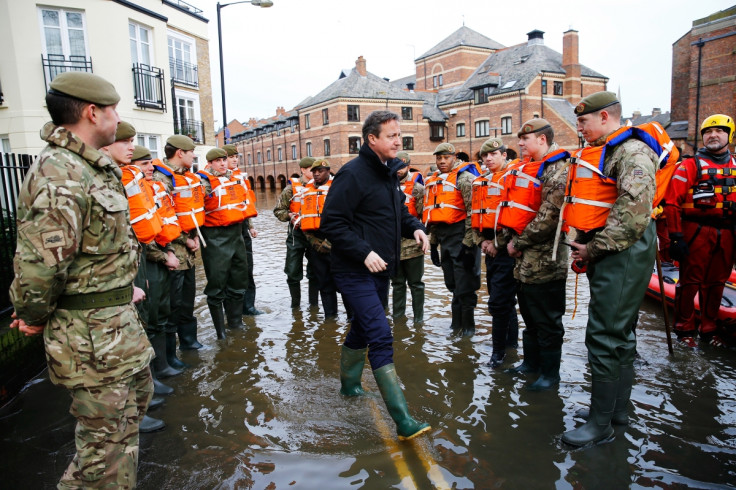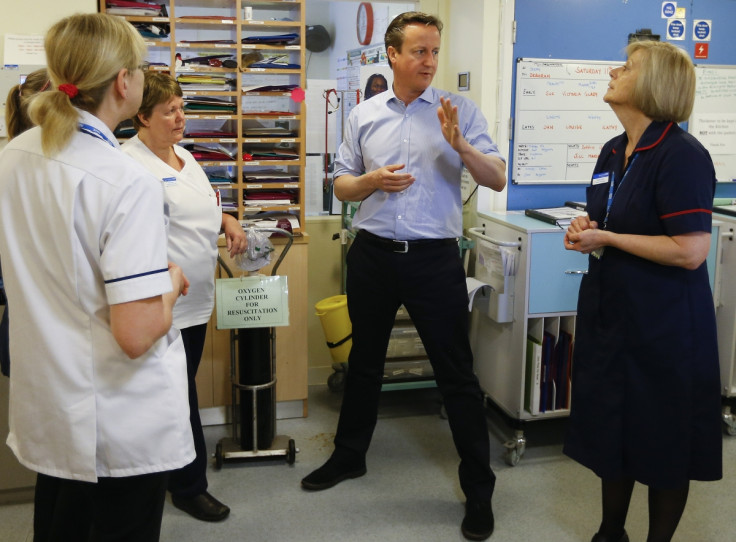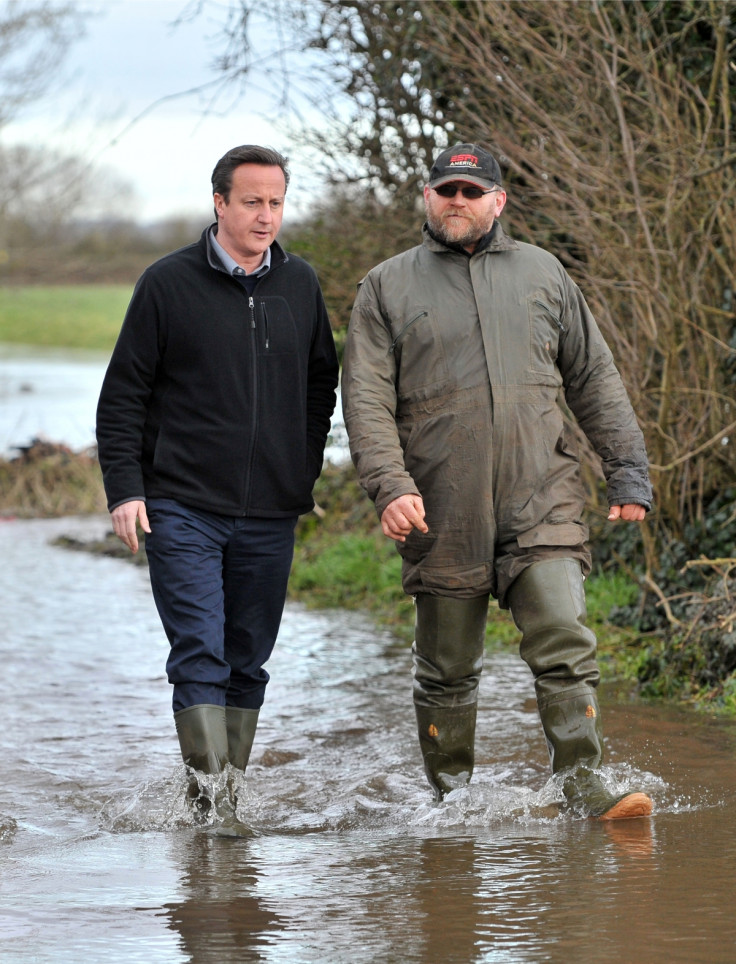The future of the UK isn't looking good – and it's all down to Cameron's careless cuts

I sometimes think David Cameron lives his life as his own Action Man doll, dressing himself up according to the various demeanours he wishes to display.
For Parliament it is the classic dark blue suit, white shirt and (always, as if he needed to remind us he was a Conservative) a blue tie.
But he is never happier than when able to rip himself free of the tie and dress to say to the world 'Action Man needs to dress according to the actions he is busy taking.'
He rarely wears a tie when campaigning, adores a good old jacket off, all the better to pump his clenched fist when he is delivering the clip he wants the news to carry on the bulletins in the evening.

NHS visits have the sleeves rolled up, sending out the message that if only he wasn't so busy being Prime Minister he could actually do the operations more and more people are waiting longer and longer to have.
Cameron loves waking to the news that he is to chair a meeting of Cobra, the dramatic- sounding name given to the Cabinet Office Briefing Room A which is as far removed from a White House Situation Room as can be imagined. But not in Cameron's head. Cobra says 'I am busy, I am being kept up to date with developments, I am instructing the arms of the State in which direction they should wave aimlessly.' Terror attacks, military strikes, public health scares, transport chaos and now floods, COBRA has been giving plenty of succour to his Action Man tendencies.
So off he went in his wellies, made all the right noises, struck all the right poses, then back into his helicopter, and home in time for tea.
The problem was... we had seen him play this tune before... the last time he donned the wellies, made all the right noises, struck all the right poses, then got back into the helicopter and home in time for tea.
So this week he didn't get quite as good a reception as the last time because the flood victims had heard it all before – the noises about doing everything it takes, stopping at nothing, making sure they get the resources they need, looking at what went wrong, then learning the lessons and making sure... blah blah blah.

Of course he relies on the fact that before too long the world's attention moves on to another situation which requires another Cobra, another look and another Action Man outfit. It is only when he keeps needing to get out the repeated looks that we get reminded he keeps promising to sort things out, and then doesn't.
At the heart of all this, however good he is at turning on the style, are two points of real substance which get to the heart of why this government spends so much time dealing with and reacting to events. The first is that he is endlessly tactical in an era that requires strategic leaders more than ever.
The second is that the floods are a horrible metaphor for the Cameron-Osborne view of the State and how money should, or more likely should not, be spent.
One of the tragedies of the past decade is that the Tories successfully played, and won, a political game over 'the mess we inherited from Labour.' They were helped in this by Labour unfortunately colluding with it, by failing adequately to rebut the attack.
The purpose from the Tories' perspective was to pin on Labour the principal blame for the consequences of the global financial crisis, and subsequently the blame for the crash itself, as a way of reducing trust of Labour on the economy. It was a ludicrous attack which should never have succeeded but it did, thanks to Tory discipline of message delivery and Labour failure of rebuttal and lack of confidence about defending our own very good record.
This had the deeper consequence of identifying within the political debate the idea that public spending is per se a bad thing. This was deliberate from the Tories. To justify an assault on the State they always wanted to mount they had to win an argument that State spending is profligate and that in any event it doesn't deliver the value for money that it should.
It meant that when George Osborne was going through the spending bids of departments – particularly once freed of a Lib Dem around his neck – he was demanding cuts to all budgets to meet very dramatic State-shrinking targets that even Margaret Thatcher didn't dare try.
So something like flood defences, when the purpose is to cut all budgets as low as they will go, is not an essential part of infrastructure in an era of changing climate, but a number that has to be cut. Any argument that proper investment might lead to savings in the future is swept to one side.
Yet that is the best argument for public spending in the first place and it is one Labour should have made with more vigour, and should do so with more vigour now.
What we are seeing with floods is the inevitable consequence of a mindset that sees virtue in cuts today without regard to the consequences tomorrow. The cost of dealing with these floods now and in the future will dwarf anything saved by scrimping on the costs of proper flood defences. Similarly, cuts to police will see a rise in crime which will end up costing us more. Failure to invest in defence will see a rise in the threats we face which will end up costing us more.
Thanks to the investment which the Tories managed to turn into a negative post, a crash caused by forces of ultra-conservative ultra-capitalism in the US, Labour ended winter crises in the NHS. They are back. Thanks to the same investment we put a virtual end to rough sleeping. Now there is barely a town or city in the country where you won't see people living on the streets. And the costs to the State will be felt further down the track in police time, court time, prisons, hospital services.
The same investment saw Sure Start giving poorer families the kind of start and support they needed. We are already seeing the consequences of the ideological cuts.
Spending on schools rose by around 5% a year under Labour and hundreds of secondaries were rebuilt. In this Parliament schools are facing cuts of between 9% and 12% percent according to the IFS, which will undoubtedly impact on the education of our most disadvantaged pupils. Cameron somewhat implausibly says he wants all children to have the kind of opportunities he had. But by his very actions he is making it not just implausible but impossible.
David Cameron is very good at looking the part. He is very good at finding the right clothes and the right words for the moment. But he is very bad at understanding that many of the problems he vows so passionately post-Cobra to solve are problems which he and his ideological approach to public spending have created.
© Copyright IBTimes 2024. All rights reserved.






